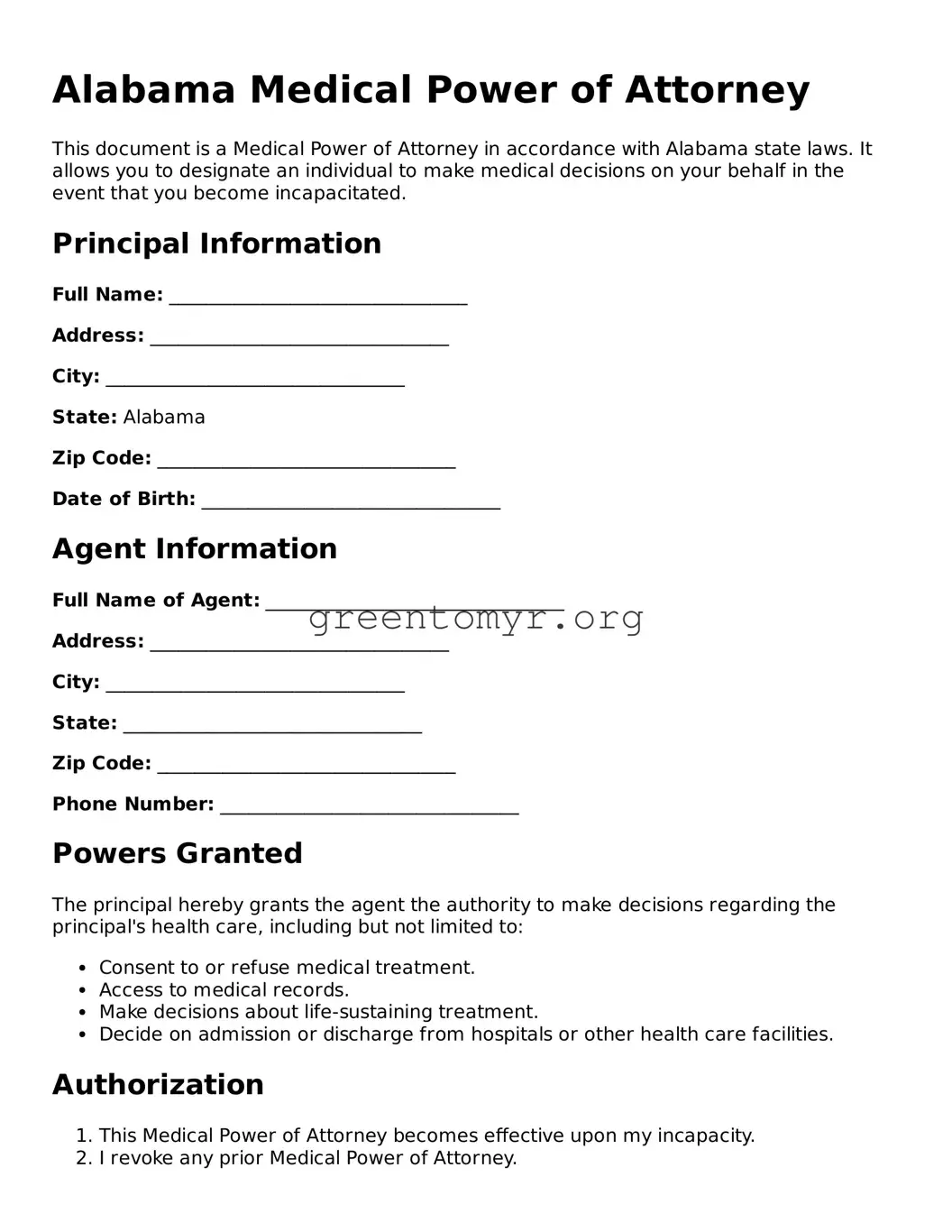Alabama Medical Power of Attorney
This document is a Medical Power of Attorney in accordance with Alabama state laws. It allows you to designate an individual to make medical decisions on your behalf in the event that you become incapacitated.
Principal Information
Full Name: ________________________________
Address: ________________________________
City: ________________________________
State: Alabama
Zip Code: ________________________________
Date of Birth: ________________________________
Agent Information
Full Name of Agent: ________________________________
Address: ________________________________
City: ________________________________
State: ________________________________
Zip Code: ________________________________
Phone Number: ________________________________
Powers Granted
The principal hereby grants the agent the authority to make decisions regarding the principal's health care, including but not limited to:
- Consent to or refuse medical treatment.
- Access to medical records.
- Make decisions about life-sustaining treatment.
- Decide on admission or discharge from hospitals or other health care facilities.
Authorization
- This Medical Power of Attorney becomes effective upon my incapacity.
- I revoke any prior Medical Power of Attorney.
- This document shall remain in effect until revoked by me in writing.
Signature
Principal’s Signature: ___________________________
Date: ___________________________
Witnesses
This document must be signed in the presence of two witnesses who are not related to the principal or the agent.
Witness 1 Signature: ___________________________
Date: ___________________________
Witness 2 Signature: ___________________________
Date: ___________________________
